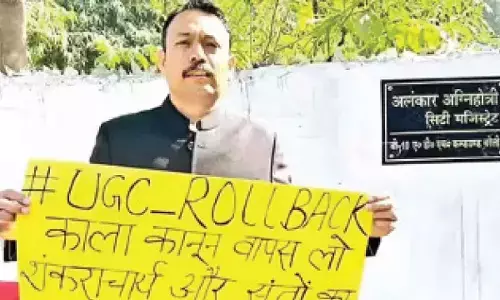Australia working towards saving Great Barrier Reef

Australia Working Towards Saving Great Barrier Reef. Australia said today it was confident it had done enough to prevent the United Nations from listing the Great Barrier Reef, the world\'s biggest coral reef ecosystem, as being \'in danger\'.
 Sydney: Australia said today it was confident it had done enough to prevent the United Nations from listing the Great Barrier Reef, the world's biggest coral reef ecosystem, as being 'in danger'.
Sydney: Australia said today it was confident it had done enough to prevent the United Nations from listing the Great Barrier Reef, the world's biggest coral reef ecosystem, as being 'in danger'.
Amid concerns about planned coastal developments, including ports, the United Nations Educational, Scientific and Cultural Organisation (UNESCO) is set to announce overnight a draft decision on the site, which teems with marine life.
"They can see we are doing real work to improve the reef," Environment Minister Greg Hunt told the Australian Broadcasting Corporation.
"We have carried this case to UNESCO and what they have said to us is that it's extraordinary the job Australia has done in the last 18 months.
"I believe that we're making once in a century changes to ensure that a century from now, the reef won't just be as it is, but will be better and stronger than it has been since European settlement."
Australia has recently ordered a ban on the century-old practice of dumping dredge waste -- which conservationists says smothers corals and seagrasses -- across most of the reef, and funded efforts to improve water quality.
Queensland state, the gateway to the reef, has also promised to introduce laws to limit port development as it balances environmental concerns with the needs of the resources industry.
Earlier this week, Hunt told The Australian Financial Review he was "increasingly confident the draft decision will recognise what we've done".
"The feedback from other countries has been increasingly supportive and there is no indication they are looking to delist it," he said.
The Great Barrier Reef, which covers an area of 348,000 square kilometres off Australia's east coast and contains some 2,500 individual reefs, was listed as a World Heritage Site in 1981.
Paris-based UNESCO says it provides some of the world's most spectacular maritime scenery and one of the richest ecosystems for fish, birds, crustaceans and other marine life.
But in 2011 it declared "extreme concern" at the approval of liquefied natural gas processing and port facilities within the site and subsequently warned the reef could be deemed "in danger".
Queensland Environment Minister Steven Miles said UNESCO had indicated to the state government that it had taken significant steps to protect the site which faces threats from farming run-off, coral-eating crown-of-thorns starfish and climate change.
"I am hopeful, confident, that UNESCO will see we have done a lot since their last meeting, to do more to turn the reef around," Miles told ABC.
Greenpeace said successive governments' emphasis on expanding Queensland's resources industry had put the reef at risk. "It's essential to have this international spotlight on the reef. The reef is in danger," Greenpeace's Jess Panegyres said.
UNESCO is due to deliver its final ruling in June.
















